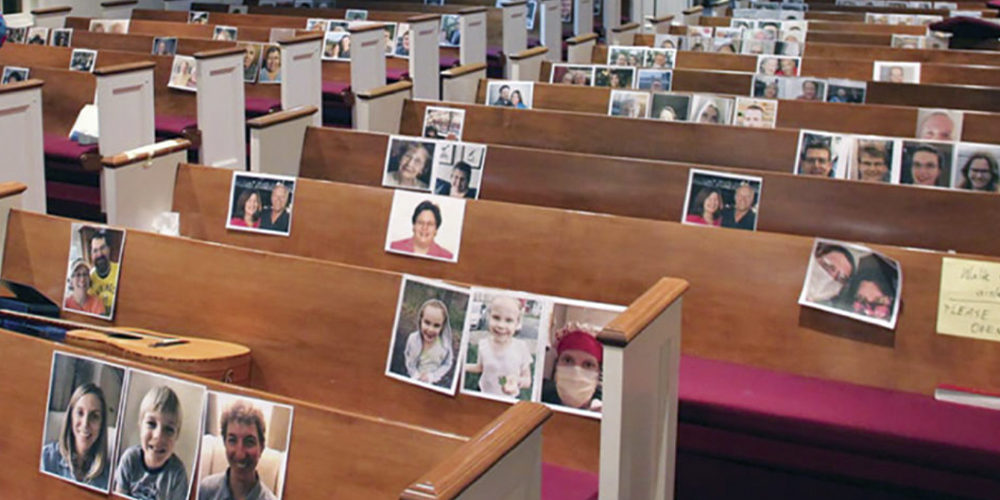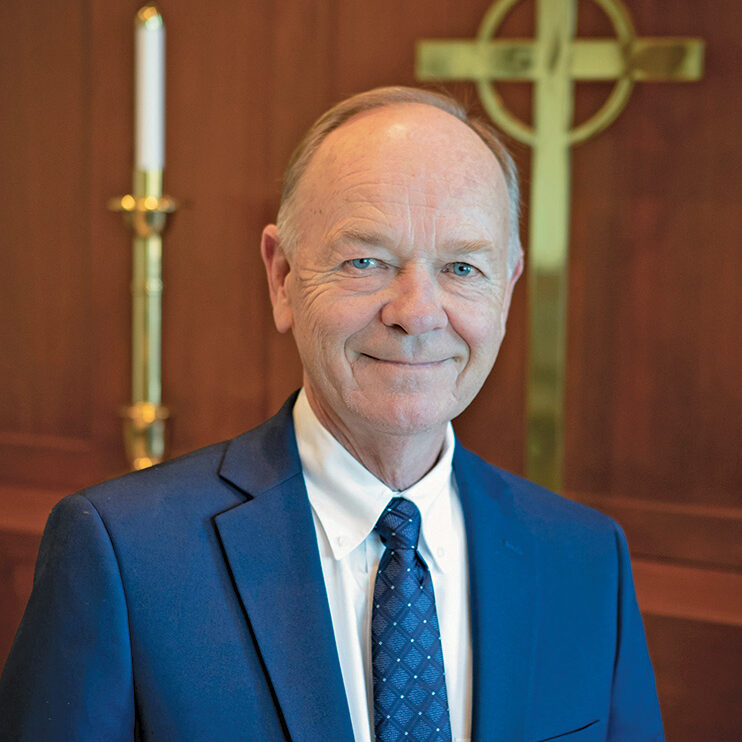 |
Last spring, the United States and countries around the world responded to the COVID-19 pandemic in unprecedented ways. In most states, many businesses were forced to cease operations, and schools were closed. The federal government mobilized industries to produce and distribute tests, treatments, medical equipment, and protective gear. Steps were taken to provide additional unemployment compensation to millions of workers. Congress approved several huge spending bills to assist businesses and individuals. And, of course, our own synod was affected, as congregations complied with government mandates to close their schools and to discontinue in-person public worship.
Throughout the challenges posed by the pandemic, the work of the church did not stop. Congregations found creative ways to serve people with the proclamation of the gospel. Christians joined in worship remotely. Bible classes were taught. Congregations and their members continued to share their faith with friends, neighbors, and communities. Christian love continued to be shown to those in need.
The work of the synod continued as well. In-person meetings were not held and major events were canceled or postponed, but online video conferencing enabled important business to be accomplished. And even though our synod’s ministerial schools were forced to cancel in-person classes, students continued via online instruction to prepare for serving their Lord in the public ministry.
Now is the time of year when many of our congregations will be welcoming newly assigned teachers and staff ministers from Martin Luther College and newly assigned pastors and vicars from Wisconsin Lutheran Seminary. Even though the Conference of Presidents could not meet in person, assignment meetings were held via video conferences. Graduates could not be on campus for their commencement ceremonies, but graduations still took place and assignments were announced. In other words, despite the challenges posed by the pandemic and the major adjustments that needed to be made, the Lord of the church continued to make it possible to prepare workers for ministry and to send them into his harvest field.
We can draw two important lessons from this entire experience.
First, we see God keeping his promise that nothing in this world will keep his Word from being proclaimed and his gospel message from doing its saving work—both among those who already know God by faith and among those who have yet to believe. God has promised that his Word will not return to him empty but will always accomplish its purpose (Isaiah 55:11).
Second, we are reminded that God continues to send workers into his harvest field, despite the challenges we face. This entire experience can lead us to appreciate even more the blessings that God brings to us and to our congregations through our called workers. Training pastors and teachers to bring God’s saving gospel to future generations remains one of our synod’s reasons to exist.
It’s a time to thank God that he has enabled us, by his grace, to continue to carry out that important part of our mission. It’s a time to say again with the apostle Paul, “I am convinced that neither death nor life, neither angels nor demons, neither the present nor the future, nor any powers, neither height nor depth, nor anything else in all creation [including some terrible virus] will be able to separate us from the love of God that is in Christ Jesus our Lord” (Romans 8:38,39).
Author: Mark Schroeder
Volume 107, Number 07
Issue: July 2020
- The mission of WELS schools
- Blessings in tragedy
- Confusion or comfort?
- Never take it for granted
- A season of miracles
- Don’t miss the point
- Another humbling experience
- Our cross and crown
- The public ministry and the divine call
- No fear of bad news
- Big challenge, bigger blessings
- Our worldwide fellowship
- Seize the opportunities
- The Lord takes care of his church
- Savor the rain
- Up close and personal
- It’s never too early
- Thanks for not giving
- Hope for the future
- Our task is not over
- Update on WELS’ effort in Vietnam
- More workers for a bountiful harvest
- 150 years of fellowship
- A unique system of schools
- God’s cure—for everything
- Lenten repentance, Lenten appreciation
- Pray for us
- Plan with wisdom and faith
- Purposeful discussions
- Upholding biblical values
- President’s message: To judge or not to judge
- President’s message: A field ripe for harvest
- President’s message: Thoughts about the new hymnal
- President’s message: Cooperating in externals
- President’s message: Canceling the cancel culture
- President’s message: Making normal a reality
- President’s message: The fields are ripe for harvest
- President’s message: The end of the story
- President’s message: Blessings small and large
- President’s message: Standing on the truth
- President’s message: Peace on earth—but what kind?
- President’s message: Thankful—even now?
- President’s message: More than dollars and numbers
- President’s message: A time for trust
- President’s message: Future unknown, future certain
- President’s message: God’s work does not stop
- President’s message: A lesson to be learned
- President’s message: Having the right tools
- President’s message: What kind of leaders?
- President’s message: What’s love got to do with it?






